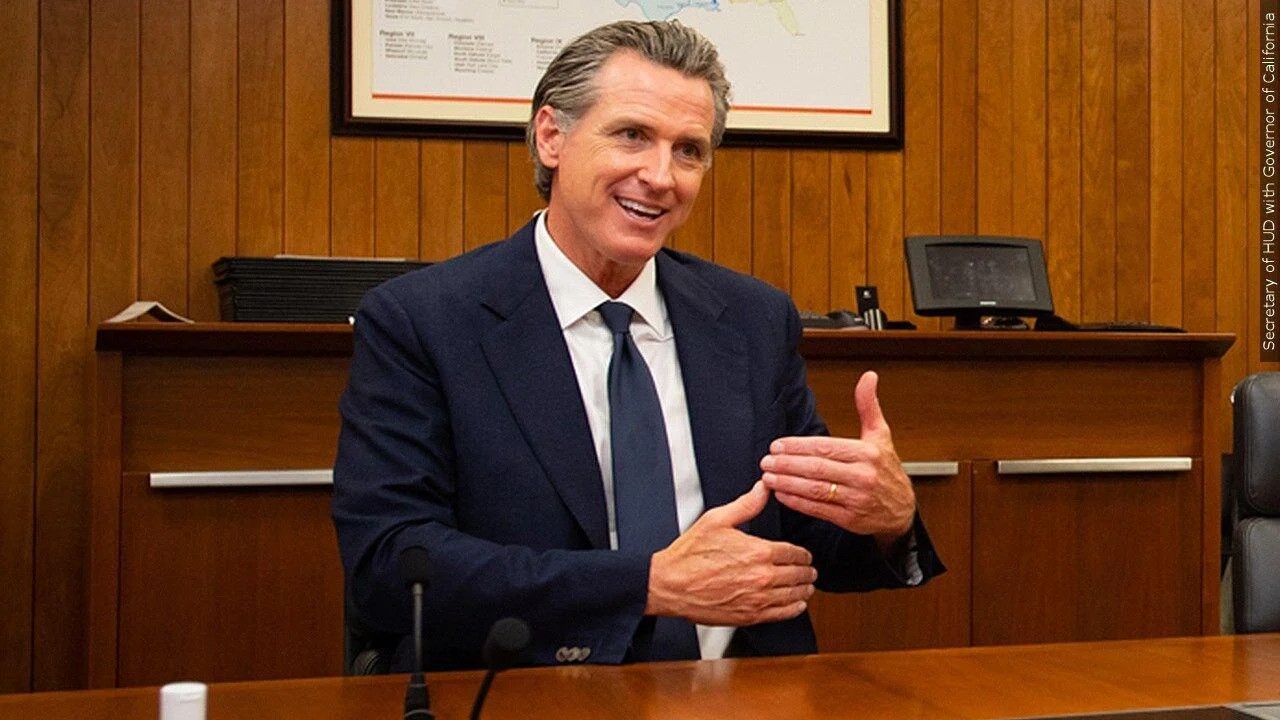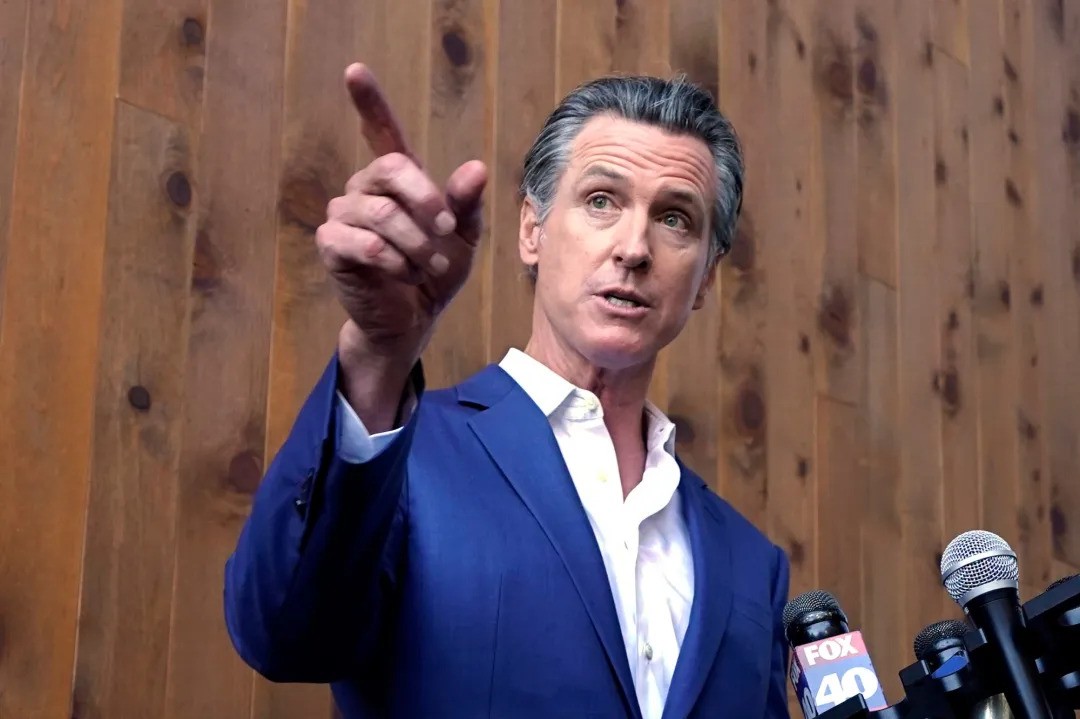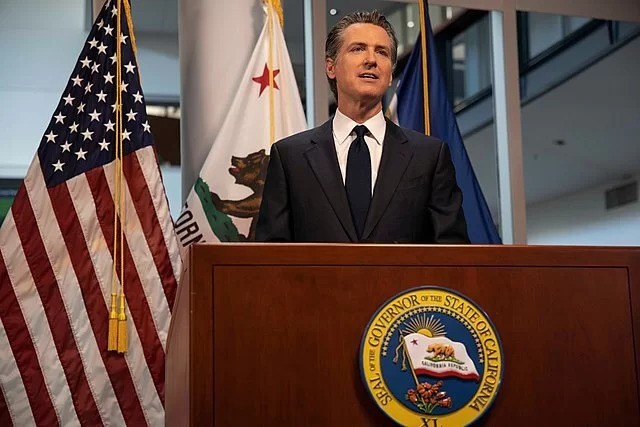A federal judge struck down California Gov. Gavin Newsom’s controversial meme ban on Wednesday, declaring it unconstitutional. Judge John A. Mendez from the U.S. District Court for the Eastern District of California described Newsom’s AB 2839 as a “hammer instead of a scalpel,” arguing that it “acts as a hammer instead of a scalpel, serving as a blunt tool that hinders humorous expression and unconstitutionally stifles the free and unfettered exchange of ideas which is so vital to American debate.”
This decision emerged from a lawsuit filed by satirist Christopher Kohls, known online as Mr. Reagan, who hoped to overturn the ban. Kohls celebrated the victory on X, writing, “VICTORY! Lawsuit against Newsom has been won.”
Elon Musk, who had previously amplified one of Kohls’ memes, responded to the ruling with enthusiasm. “California’s unconstitutional law infringing on your freedom of speech has been blocked by the court. Yay!” Musk posted.
The Controversial Meme

The dispute began when Kohls shared a parody video on July 26, mimicking a Kamala Harris campaign ad. The video featured an AI-generated voiceover of Harris stating, “I, Kamala Harris, am your Democrat candidate for president because Joe Biden finally exposed his senility at the debate,” in a satirical take on political advertising. As Musk reshared the video, it quickly gained hundreds of millions of views, prompting backlash from Harris supporters and even Newsom himself.
Mia Ehrenberg, a spokeswoman for Harris’s campaign, condemned the video. “We believe the American people want the real freedom, opportunity and security Vice President Harris is offering; not the fake, manipulated lies of Elon Musk and Donald Trump,” Ehrenberg stated.
Newsom was swift to signal his disapproval. “Manipulating a voice in an ‘ad’ like this one should be illegal. I’ll be signing a bill in a matter of weeks to make sure it is,” he declared.
In a tongue-in-cheek response, Musk retweeted the video and added, “I checked with renowned world authority, Professor Suggon Deeznutz, and he said parody is legal in America.” Of course, no such professor exists.
Newsom’s Legislative Push

On September 17, Newsom signed two bills aimed at curbing digital misinformation: AB 2839 and AB 2655. AB 2839 specifically prohibits the distribution of “materially deceptive content” related to elections within 120 days before, and sometimes 60 days after, an election.
Gail Pellerin justified the bill by stating, “California is taking a stand against the manipulative use of deepfake technology to deceive voters.”
However, this law’s sweeping language did not sit well with free speech advocates, as it includes content created or altered with AI to deceive viewers. AB 2655, known as the “Defending Democracy from Deepfake Deception Act of 2024,” similarly requires social media companies to censor “materially deceptive” election-related content.
Newsom’s spokesperson, Izzy Gardon, defended the laws, claiming they strike a balance between free speech and protecting democracy. “Deepfakes threaten the integrity of our elections, and these new laws protect our democracy while preserving free speech,” Gardon said. “Satire remains alive and well in California — even for those who miss the punchline.”
Court Ruling and Its Implications
Kohls, represented by the Hamilton Lincoln Law Institute, argued that AB 2839 infringed upon First and Fourteenth Amendment rights. His legal team contended that the bill was overly broad, targeting specific forms of speech and even discriminating against satirical content.
Judge Mendez agreed, issuing a preliminary injunction against AB 2839 and affirming that “AB 2839 does not pass constitutional scrutiny because the law does not use the least restrictive means available for advancing the State’s interest here.” He also emphasized that fear of digital misinformation does not permit authorities to erode long-standing protections for parody and satire under the First Amendment.
Adam Schulman, a senior attorney with the Hamilton Lincoln Law Institute, praised the ruling as a “powerful reaffirmation of free speech values in a world of new technology.”

In a final swipe, Michael Shellenberger, CBR chair of politics, censorship, and free speech at the University of Austin, celebrated the court’s decision. “Free speech, not censorship, is the solution to bad info. Wonderful repudiation of totalitarians @GavinNewsom @KamalaHarris & @Tim_Walz,” he tweeted.
Kohls emerged triumphant, with Musk cheering on the decision. “Score one for the people’s right to free speech,” Musk wrote.
The ruling has set a significant precedent in the ongoing debate over how governments should navigate the risks posed by AI and digital manipulation. While Newsom’s office may appeal, for now, satire remains a powerful tool for public discourse in California.



